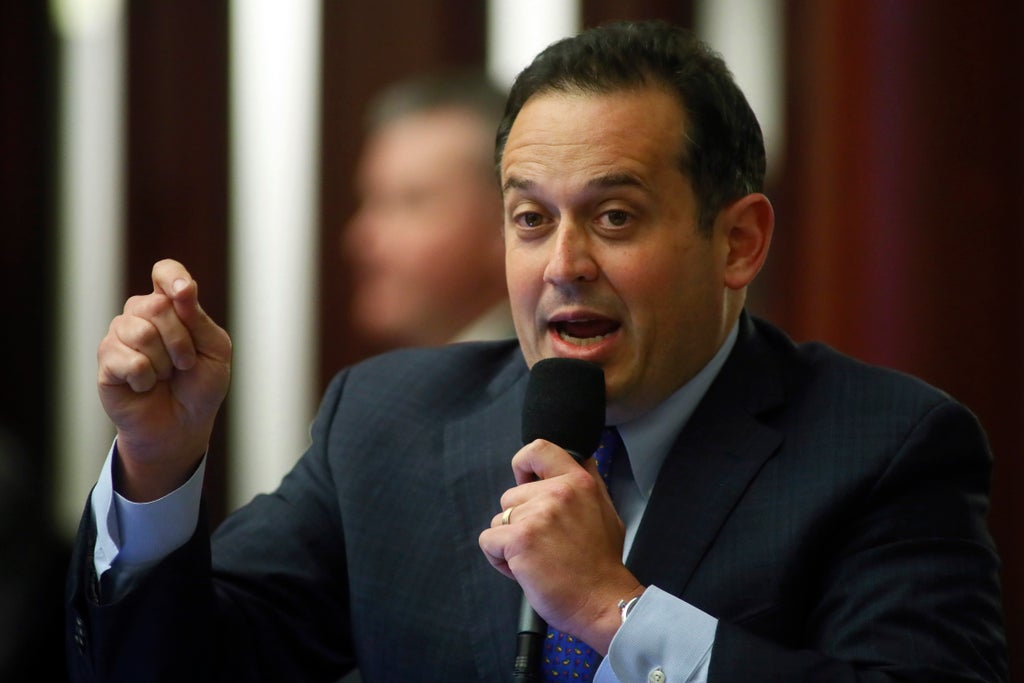
Voting rights groups sued Florida on Friday over a congressional map drawn by Gov. Ron DeSantis and passed by the GOP-controlled Legislature, saying it will diminish the state's Black representation and benefit Republicans.
Florida lawmakers approved the map Thursday as part of a contentious three-day special legislative session during which Black and Democratic representatives staged a sit-in on the House floor, prayed and sang “We Shall Overcome" in protest.
The map is awaiting DeSantis' signature.
The League of Women Voters of Florida, the Black Voters Matter Capacity Building Institute, Equal Ground Education Fund and others filed the suit in a state court in Tallahassee. The case alleges the new map violates provisions of the Florida Constitution that prohibit districts from diluting the electoral power of minorities and from being drawn to benefit one political party over another.
“The League and the other plaintiffs have chosen to not stand by while a rogue governor and a complicit state Legislature make a mockery of Florida’s Constitution and try to silence the votes and voices of hundreds of thousands of Black voters,” Cecile Scoon, president of the League of Women Voters of Florida, said in a statement.
The lawsuit names as defendants Secretary of State Laurel M. Lee, Attorney General Ashley Moody and the Republican leaders of the House and Senate, among others. Their offices did not immediately return emails seeking comment.
DeSantis took the unusual step of vetoing the map drawn by the Legislature earlier this year and proposing his own, calling lawmakers back into the special session to approve it. Democrats say the map strongly favors the GOP and dismantles two traditionally Black districts.
The governor’s office drew up a map it described as neutral on race and party affiliation, and which it said abided by both the state and federal constitutions. But even supporters have acknowledged that it is likely to draw legal challenges.
The Florida congressional delegation now has 16 Republicans and 11 Democrats, and the state is poised to gain one U.S. House seat based on the results of the 2020 U.S. census. Many political observers have said the DeSantis map could give Republicans a 20-8 advantage, though Florida’s vast number of unaffiliated voters can swing elections. Such an advantage would help DeSantis, should he run for and win the White House in 2024.
Of Florida’s 14.3 million registered voters, about 36% are Republicans and 35% Democrats, while the overwhelming majority of the remainder have no party affiliation.







